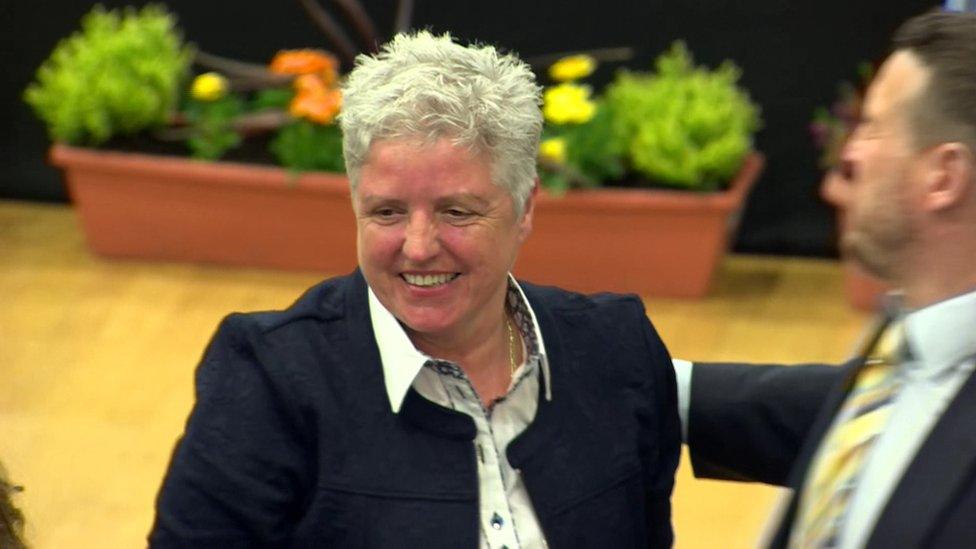British-Irish conference: Brexit rights deal signed
- Published
- comments
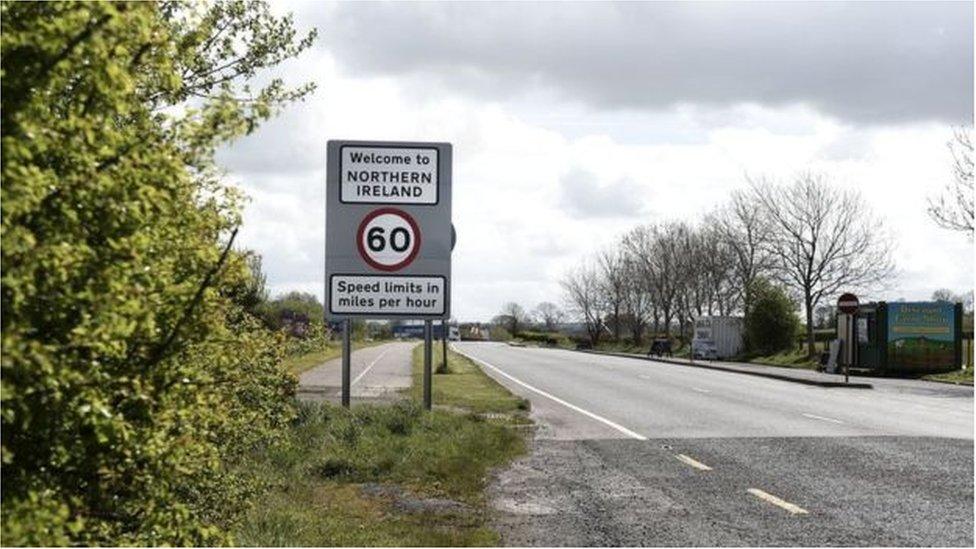
British and Irish ministers have signed a deal to preserve the Common Travel Area after Brexit.
It guarantees free movement for citizens crossing the Irish border and cross-border access for study and health care.
It comes as NI's parties meet in an attempt to break the Stormont deadlock.
Northern Ireland has been without devolved government for more than two-and-a-half years, after the DUP and Sinn Féin split in a bitter row.
A memorandum of understanding, which is not legally binding, was signed at a meeting of the British-Irish Intergovernmental Conference on Wednesday.
The conference was scheduled by the two governments following last month's murder of Lyra McKee, and is part of efforts to restore power-sharing in Belfast.
David Lidington, who is Theresa May's de facto deputy, stressed the importance of the latest memorandum.
"It guarantees that whatever the terms of the UK's exit from the EU, there will be no change to the rights of British and Irish citizens," he said.
The Tánaiste Simon Coveney gave an illustration of the kind of rights the governments want to protect.
"British and Irish people will be able to travel to each others' countries, to study, to work, access social welfare, access health care and vote in each other's elections," he said,
Some politicians argue this memorandum is insufficient as it is not a binding treaty.
However the Irish government said people should be assured by the fact that the deal has been copper fastened by legislation in both countries.
On Tuesday, the governments set out details for a fresh talks process to take place over the next few weeks.
They held talks with the five main parties, the first since substantive negotiations collapsed last year.
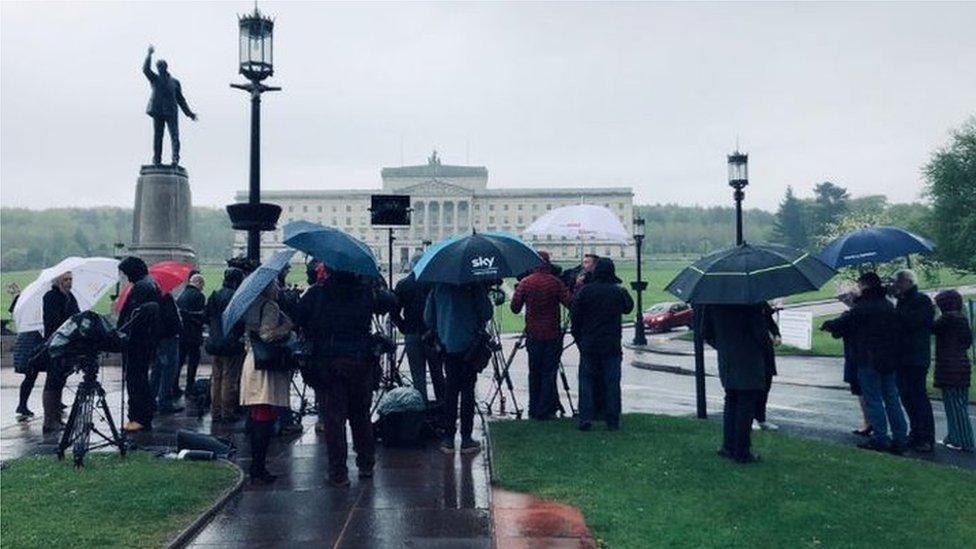
Talks got under way at Stormont on Tuesday
The Common Travel Area (CTA) gives UK and Irish citizens certain reciprocal rights in each others' countries.
The rights include largely unrestricted travel between each jurisdiction.
It is an arrangement between the UK and Ireland which pre-dates their membership of the European Union.
The memorandum will be signed by Cabinet Minister David Liddington and Tanaiste (Deputy prime minister) Simon Coveney. Northern Ireland Secretary Karen Bradley will also be in attendance.

Analysis: Brexit threatened trust
By Enda McClafferty, BBC News NI Political Correspondent
It may have been in place for more than a century but in reality it was an agreement written in sand with no real legal weight.
The Common Travel Area and the rights which flowed from it for citizens crossing the border, survived because of an arrangement between London and Dublin built on trust.
Brexit threatened that trust and exposed the legal shortcoming in the arrangement.
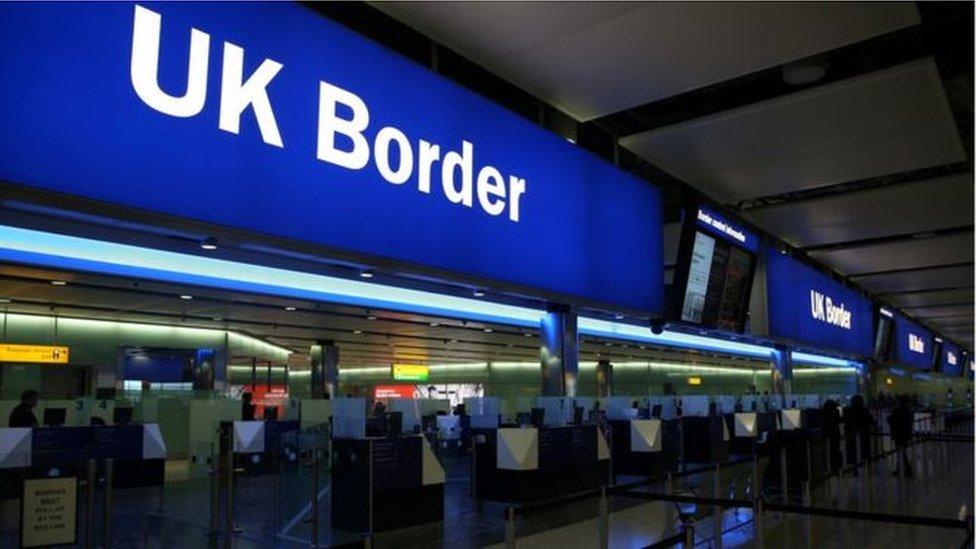
On Wednesday, ministers shored up the Common Travel Area in a Memorandum of Understanding which we are told will be Brexit-proof.
But, by definition, a Memorandum of Understanding is not a legally binding document but instead signals the intention of both sides to move forward with a contract.
So, what are the chances of the sands shifting?

The British-Irish Intergovernmental Conference was set up through the Good Friday peace agreement, signed in 1998.
It aims to promote bilateral co-operation between the British and Irish governments.
Until last summer, it had not met since 2007, but nationalist parties had urged the two governments to hold it, in the absence of a breakthrough at Stormont.
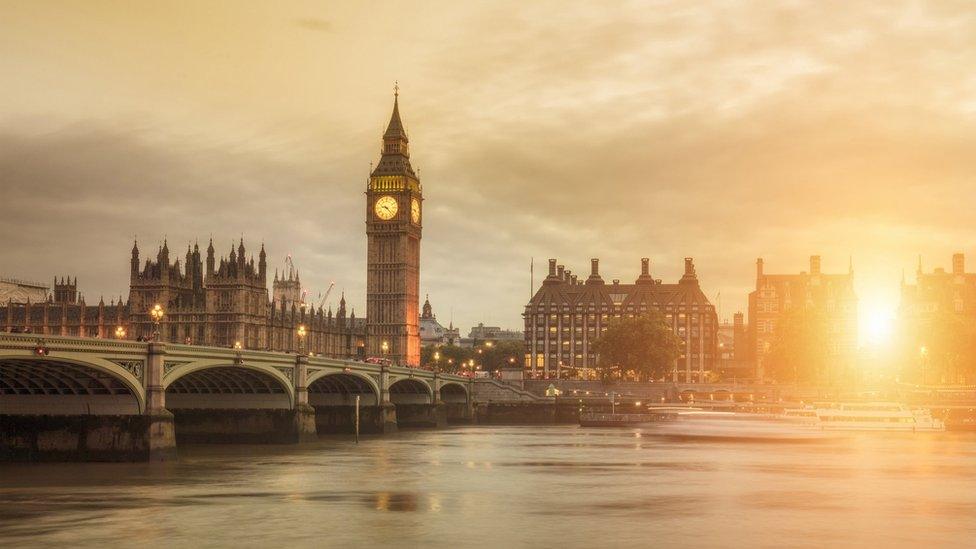
The conference is due to take place in Westminster
Meanwhile, the first of five working groups set up to deal with outstanding issues at Stormont also met on Wednesday.
The rest will begin meeting over the course of this week.
The working groups are being chaired by current and former Stormont senior civil servants, with the political parties nominating three representatives to sit on each group.
A source involved in the process said they were "open-minded" about the new talks format, and that the "most crucial" groups were those dealing with reform of the petition of concern, and language and culture.
The governments have also announced that there will be weekly meetings of the five main parties with Mrs Bradley and Mr Coveney, to "take stock".
Prime Minister Theresa May and Taoiseach (Irish prime minister) Leo Varadkar will review progress at the end of May.
- Published13 November 2018
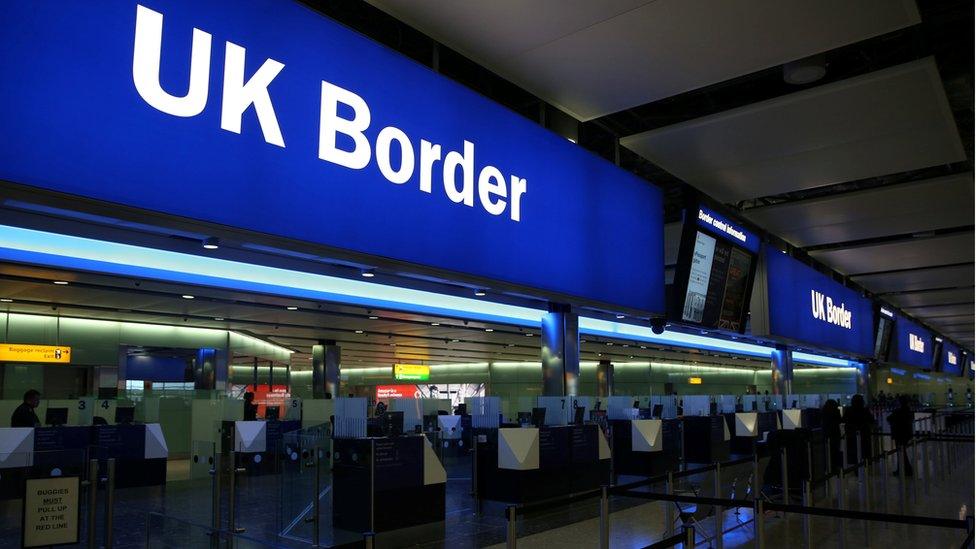
- Published7 May 2019
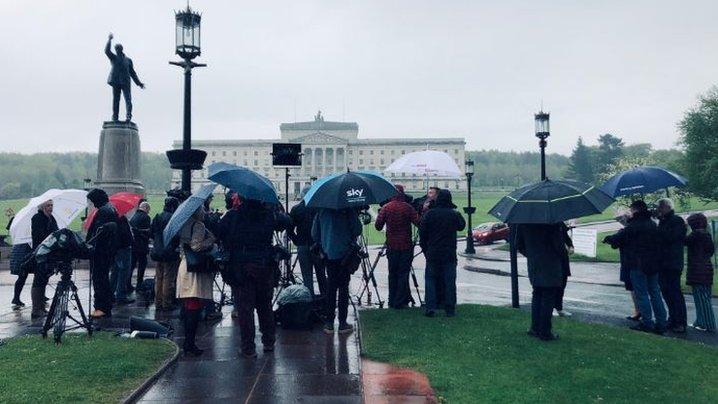
- Published24 April 2019
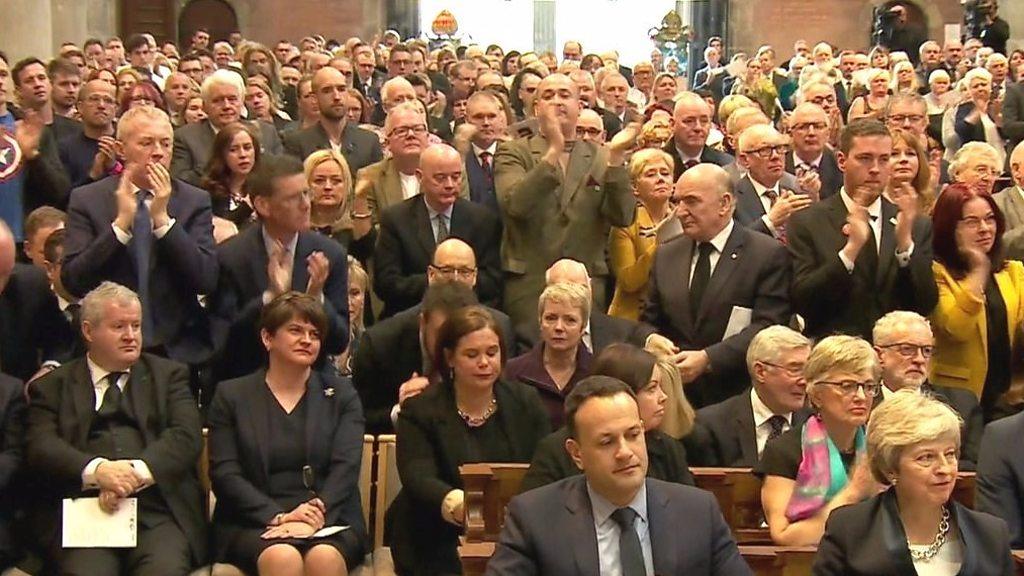
- Published4 May 2019
